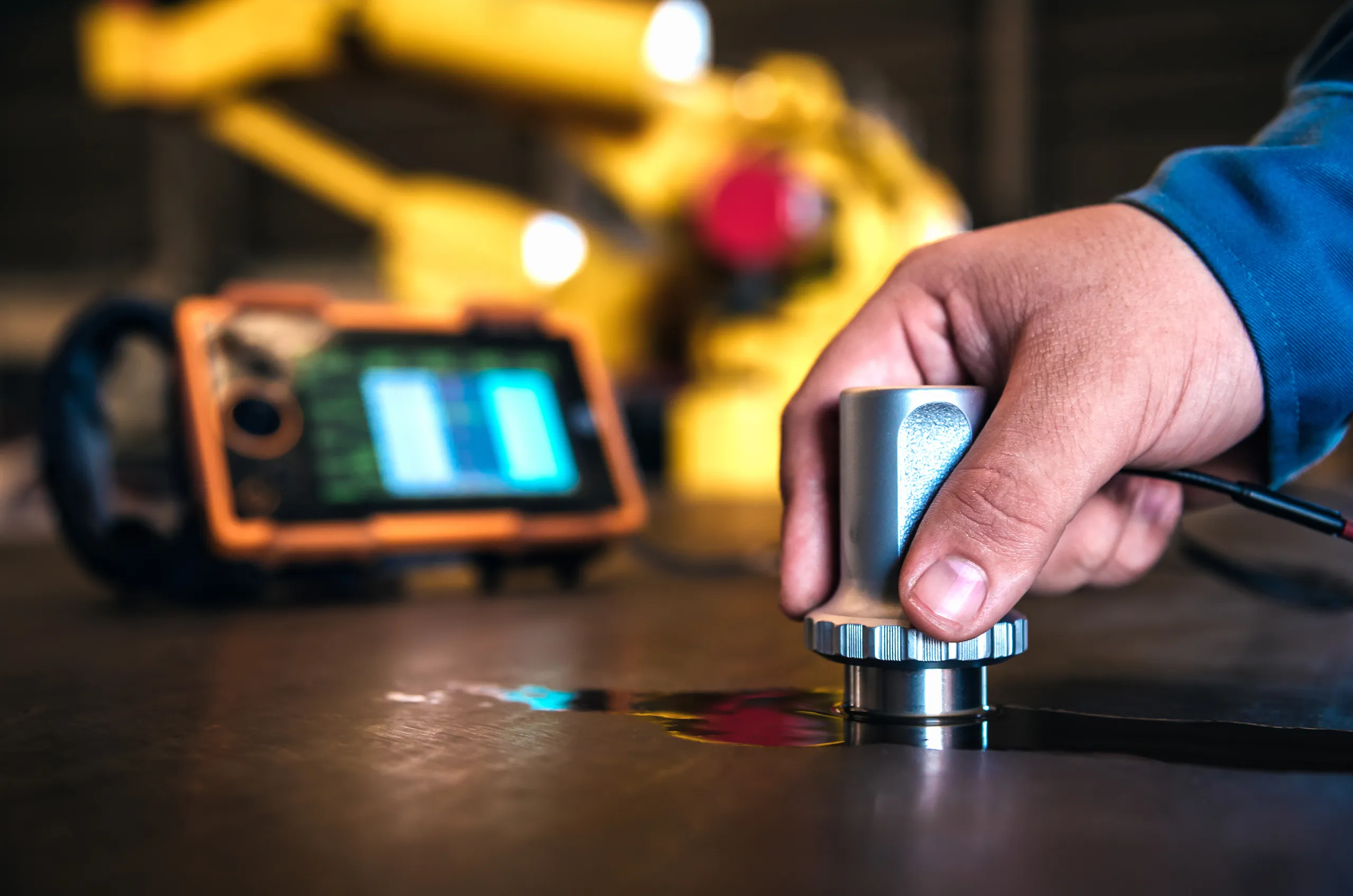GB T269 Magnetic Particle Non Destructive Testing for Vehicle Components
The GB/T 269 standard specifies a method of magnetic particle non-destructive testing (NDT) that is widely used in the automotive industry. This technique allows inspectors to detect surface and subsurface discontinuities in ferromagnetic materials, which are essential components in vehicle manufacturing.
Magnetic Particle Testing (MPT), as per GB/T 269, involves applying an external magnetic field to a component made of ferromagnetic material. When there is a flaw or discontinuity within the part, it distorts the magnetic flux lines causing leakage fields that attract magnetic particles applied on the surface. The resulting visible indications reveal potential defects.
Automotive components such as axles, gears, shafts, and brake systems are often subjected to this form of testing because they must operate under high stress conditions without failure. By ensuring these parts do not contain imperfections or flaws that could lead to catastrophic failures, manufacturers can enhance both the safety and reliability of their products.
One key advantage of MPT over other forms of NDT is its ability to identify very small surface cracks which might otherwise go unnoticed with alternative methods. Additionally, because it does not require removing paint or coatings from parts before testing, this method provides a non-invasive approach suitable for pre-production inspections as well.
GB/T 269 specifies detailed procedures including preparation of specimens, application of magnetic fields, and interpretation of results based on visual observations. Compliance with these standards ensures consistency across different laboratories conducting similar tests worldwide.
| Component Type | Testing Requirement |
|---|---|
| Axles and Shafts | Thorough inspection for surface cracks and other anomalies. |
| Gears and Brake Systems | Evaluation of integrity prior to assembly into final products. |
| Bolts and Screws | Assuring strength and durability before use in critical applications. |
- Axles: Ensure proper alignment with vehicle specifications.
- Gears: Guarantee smooth operation during continuous usage cycles.
- Shafts: Prevent premature wear due to misalignment or manufacturing defects.
Industry Applications
Magnetic Particle Testing (MPT) plays a crucial role in various sectors of the automotive industry, particularly where reliability and safety are paramount. The following sections outline specific areas within this field that benefit most from GB/T 269:
- Manufacturing Quality Control: Ensures all components meet stringent quality standards before being integrated into vehicles.
- Pre-Production Inspections: Identifies any latent defects early in the production process, reducing costs associated with rework or scrapped parts.
- Post-Maintenance Checks: Guarantees that critical components have not developed new flaws since their last inspection, enhancing overall vehicle performance and longevity.
Environmental and Sustainability Contributions
Magnetic Particle Testing contributes positively to environmental sustainability by promoting safer transportation systems through reliable component inspections. By preventing accidents caused by undetected flaws, this testing method helps reduce vehicular emissions and energy consumption associated with potential vehicle failures.
The use of non-destructive techniques like MPT also minimizes waste generated during the production cycle since it allows for early identification of defective parts that can be recycled or reused rather than discarded. Furthermore, compliance with international standards ensures consistency in testing practices across different regions, fostering global cooperation and standardization efforts towards more sustainable manufacturing processes.
Competitive Advantage and Market Impact
Magnetic Particle Testing provides a competitive edge for automotive manufacturers by enhancing product quality and reliability. Companies that adhere to strict NDT practices, particularly those aligned with recognized standards such as GB/T 269, demonstrate their commitment to excellence in production processes.
- Increased Market Share: Demonstrating superior product performance attracts more customers seeking dependable vehicles.
- Better Customer Satisfaction: Reduced instances of product failures lead to higher customer satisfaction levels and loyalty.
- Risk Management: Early detection of potential issues helps mitigate risks associated with recalls or warranty claims, saving costs in the long run.





